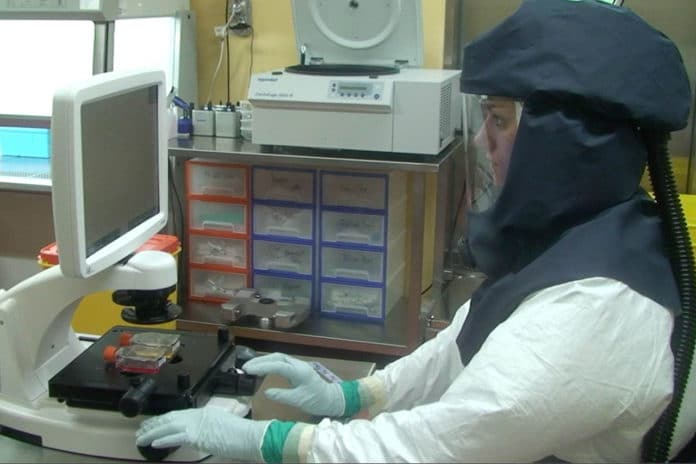Scientists in virology and veterinary bacteriology at the University of Bern have reconstructed the clones of a novel coronavirus from synthetic DNA. The synthetic clones are being used by research groups worldwide to test corona samples, find antiviral drugs, and develop vaccines as quickly as possible.
To create the clones, scientists introduced DNA copies containing parts of the coronavirus genome to yeast cells and then assembled them into a complete copy. They then used this to produce infectious coronaviruses.
The result was an artificial yeast chromosome on which the genetic information of the virus was stored. Infectious RNA was then produced in vitro (without yeast cells) using the catalyst T7 RNA polymerase. The resulting RNA was introduced into animal cells, where new, synthetic coronaviruses then multiplied—the clones had been created.
Professor Volker Thiel from the Institute of Virology and Immunology said, “We replicated the virus within the space of a week.”
Professor Jörg Jores from the Institute of Veterinary Bacteriology at the University of Bern said, “We have optimized this system to allow us to clone coronaviruses and other viruses quickly. The method enables a rapid response to new and fast-spreading viruses and their characteristics in real-time—i.e., during an outbreak.”
Professor Thiel said, “Our model system using yeast cells shows that it is ideally suited for reconstructing coronaviruses and other viruses.”
Professor Christian Griot, Head of the IVI, said, “This technical progress shows that the University of Bern is at the forefront of coronavirus research.”
Journal Reference:
- Tran Thi Nhu Thao, Rapid reconstruction of SARS-CoV-2 using a synthetic genomics platform. DOI: 10.1038/s41586-020-2294-9
